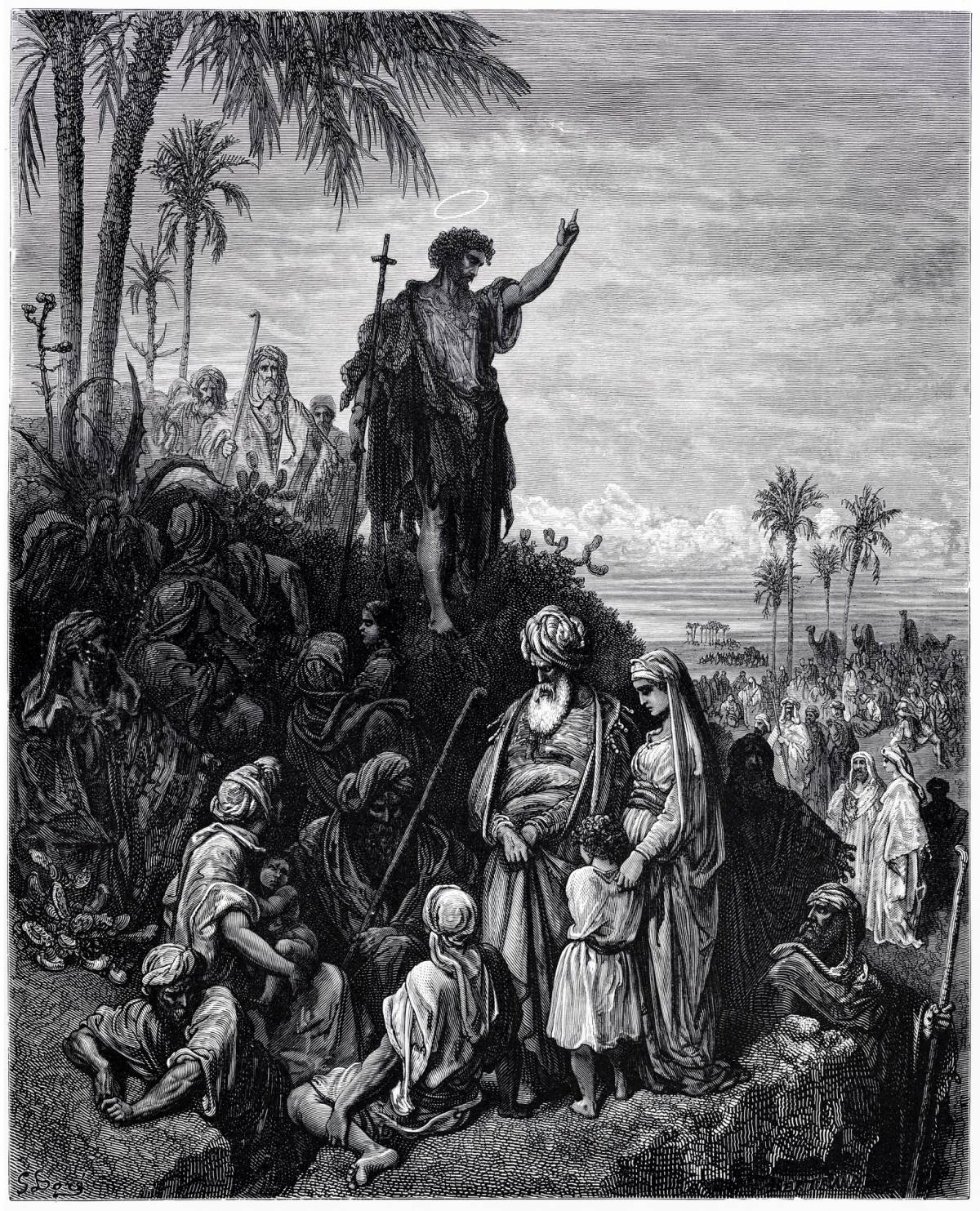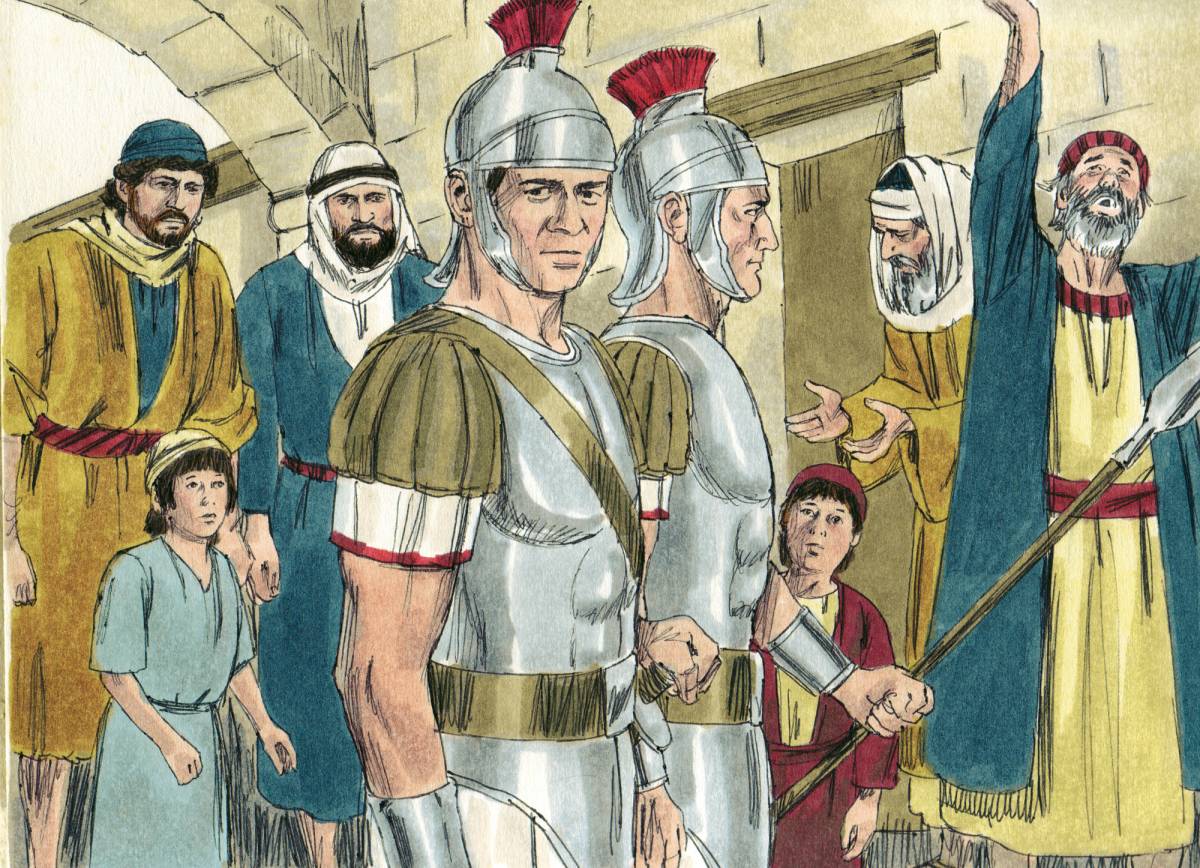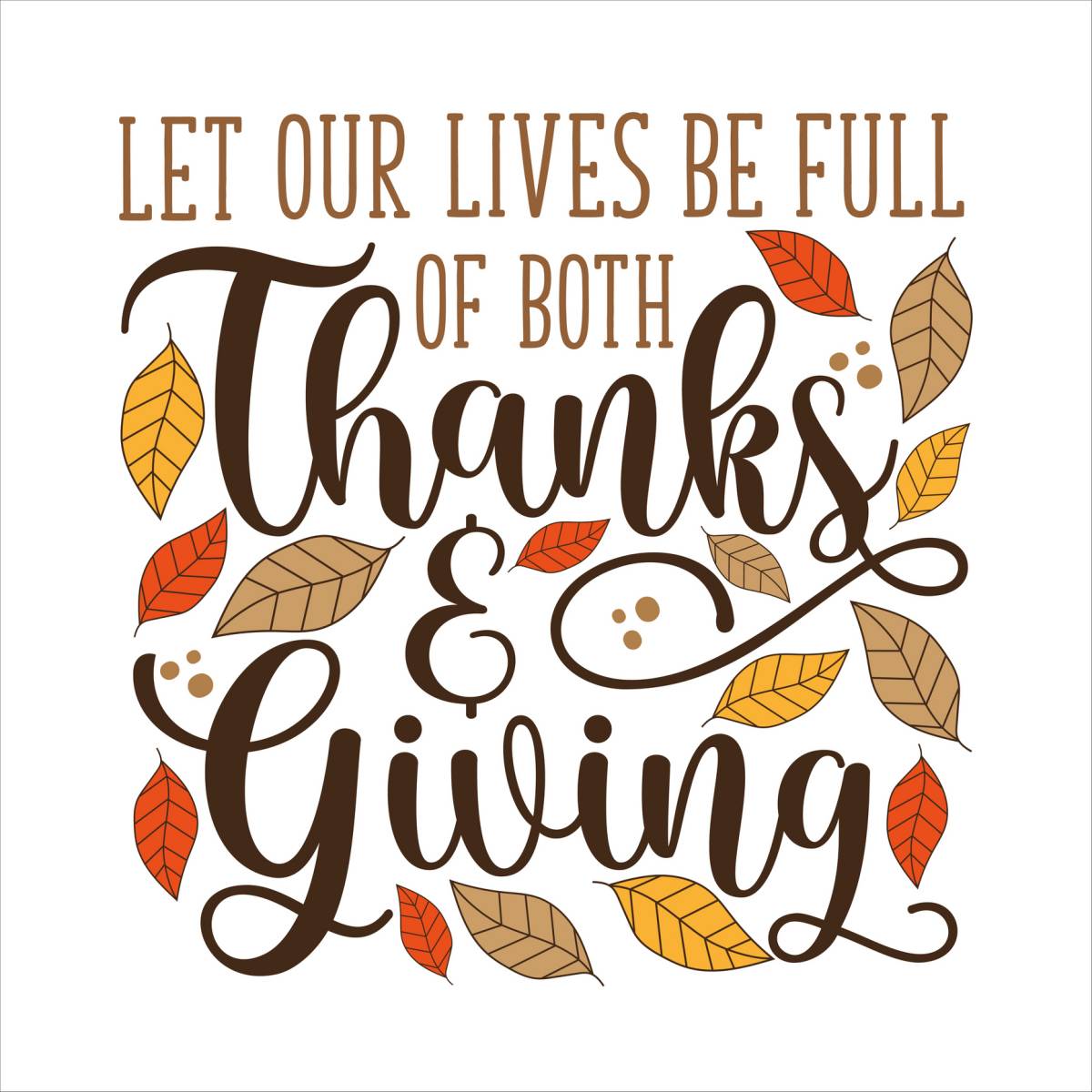What Should We Do, Luke 3:10-18
We pray, then, for the grace to grow more eager to give thanks to God with our lives.
John the Baptist’s mission was to prepare the way for the Lord, to proclaim his arrival to a people whose ancestors had hoped to fulfill that promise all the days of their lives. What he preached was not new to them, but his prophesying carried the weight of imminent fulfillment. People heard about him and came with enthusiasm from all over the countryside to hear his preaching. They heard his call for repentance and knew their own need for forgiveness and they were moved in the depths of their hearts to ask John, “What then should we do?”

We are all intimately aware of the brokenness of our world, and our faults and failings. We see, and maybe participate in some of those things like greed, violence, lies, prejudice, hatred, or have been indifferent to the suffering of others. These things turn our hearts into deserts. There is no life in them and they bring about uncountable and immeasurable suffering to others and ourselves. These are the mountains and the deep, dark valleys, the crooked and rough ways, that keep us from becoming the persons that God made us to be. They are the ways that need to be made straight and smooth within ourselves to prepare a way for the Lord to enter into our hearts, our lives, and our world. John is still calling us to repentance, just as he was calling the people of Jesus’ time. Are we listening? Are we making ourselves ready? Do we truly desire to ‘DO’ what is necessary to prepare the way for Jesus to enter into our hearts?

During each Advent season, we are given the opportunity to pray over, to think about, and to once again consider the true meaning of the Incarnation. Jesus’ birth is a monumental moment in human history and is second only to his death and resurrection which took place only a short three decades later. Each Christmas we celebrate again, the reality that God came among us to be one with us. The One through whom all things, visible and invisible, came to be, fulfilled his promise to save us from our most formidable enemies, sin and death. What should our rightful and proper response be to this divine and undeserved generosity then?

Repentance. This is not just an idea, a thought, no matter how sincerely we hold it in our minds. It is something that demands some kind of action on our part. It requires an active response of some kind. It is easy to say the word ‘thanks’ for a gift given, but is that really enough? A little example to explain what I mean here. Say someone took the time and thought about you enough to buy you a gift, say a sweater. How would you best thank them for their thoughtfulness and generosity? By happily wearing it, of course. That says ‘thank you’ much more clearly, much more powerfully. It is the action, the ‘doing’ of thanks.

When the various people come forward to ask John what they should do for the repentance of their sins John’s responses give us a clue as to how we are to actively give thanks to God for his incredible generosity of love and mercy toward us. He tells the crowds in general: “Whoever has two coats must share with anyone who has none, and whoever has food must do likewise.” When the much-despised tax collectors come forward, John tells them, “Collect no more than the amount prescribed for you.” His response to the soldiers, some of whom might very well have been Roman soldiers, or some of Herod’s soldiers is, “Do not extort money from anyone by threats or false accusations, and be satisfied with your wages.” Notice, that these are not vague suggestions. They are very specific and relate directly to the realities of each group’s lives. And they are neither easy nor simple suggestions. They are, in fact, very hard.

When we hear or read John’s responses here, do we take them seriously? If we truly believe that this infant, whose birth we will soon celebrate for the 2,024th time, is God himself, who took on our flesh in the womb of Mary; who came among us to save us from sin and death; who made the path to heaven straight and smooth again; ought we not show our thanks through the way we live our lives in accord with his will? What would be our most righteous and proper response to God’s generosity then? Would it not be, to live that same generosity with our own lives toward all others? Would we not then, like Jesus, be signs of contradiction to the world and those around us? Is this not the repentance that John the Baptist is calling us to? To share God’s generosity with those who are needy and who suffer within the intimate environs of our own daily lives. This, then, is the kind of thanksgiving that is a most worthy response to God’s generous, unconditional, forgiving love. We pray, then, for the graces to grow more eager to give such thanks to our God with our lives. Amen.
SKM: below-content placeholderWhizzco for FHB

